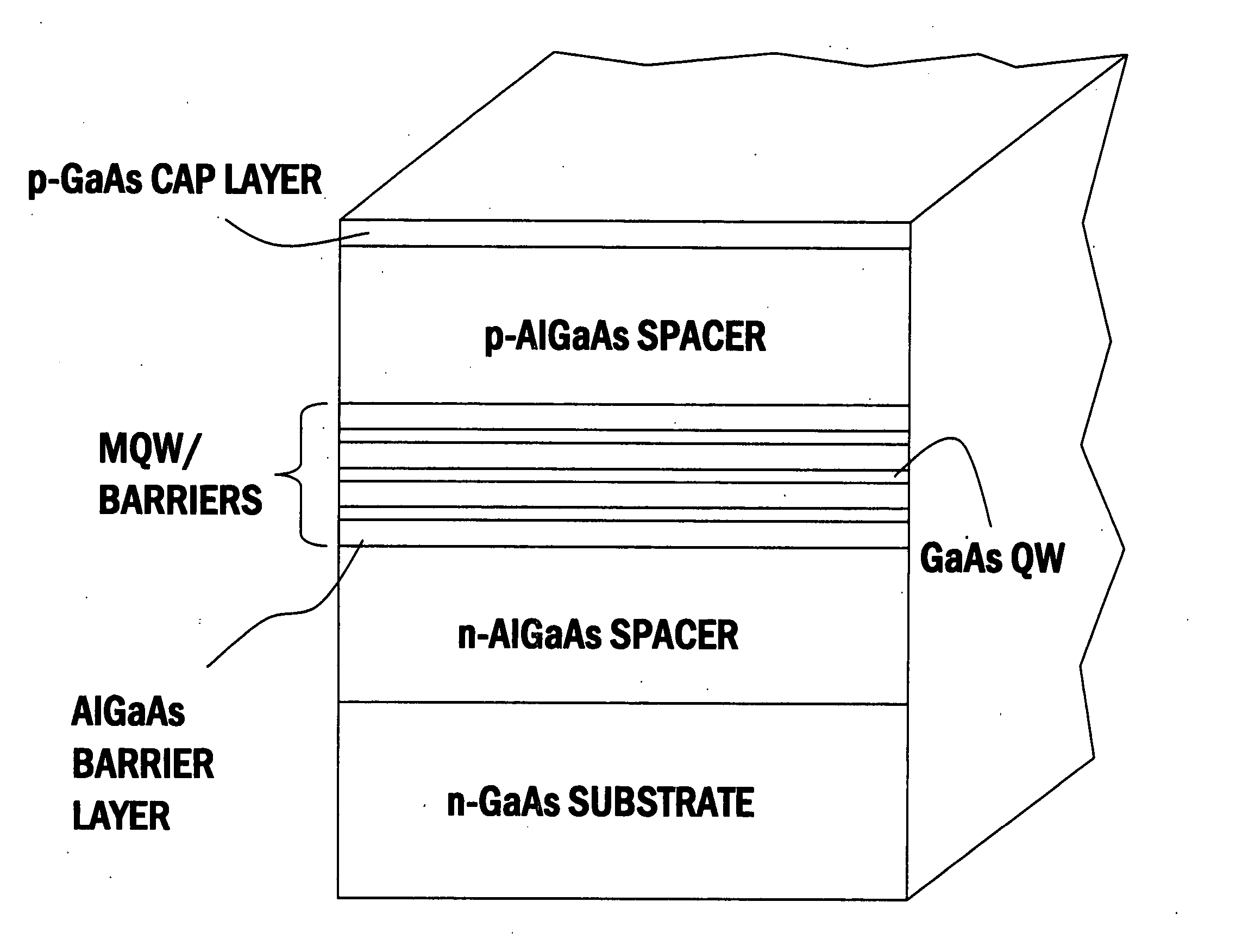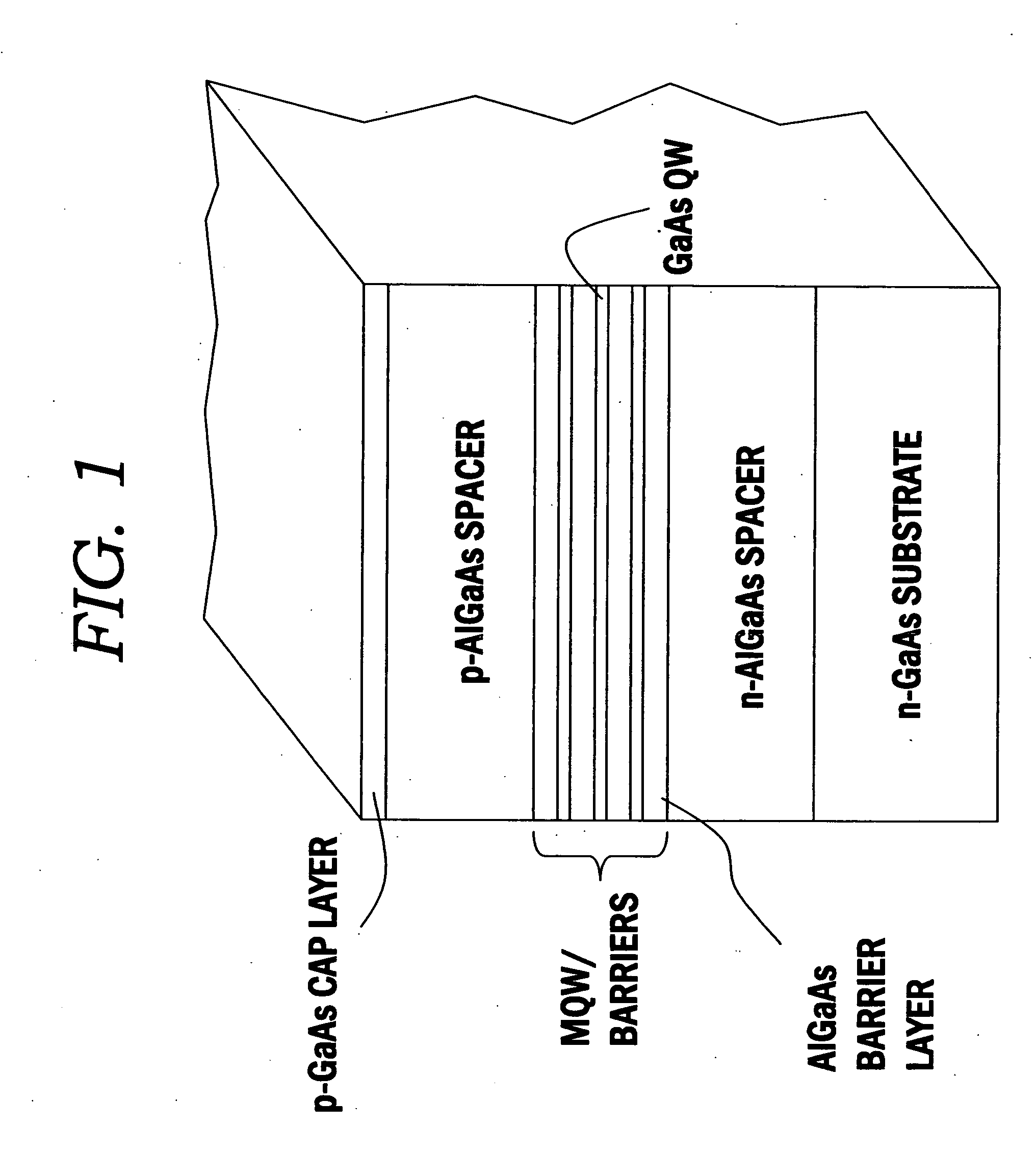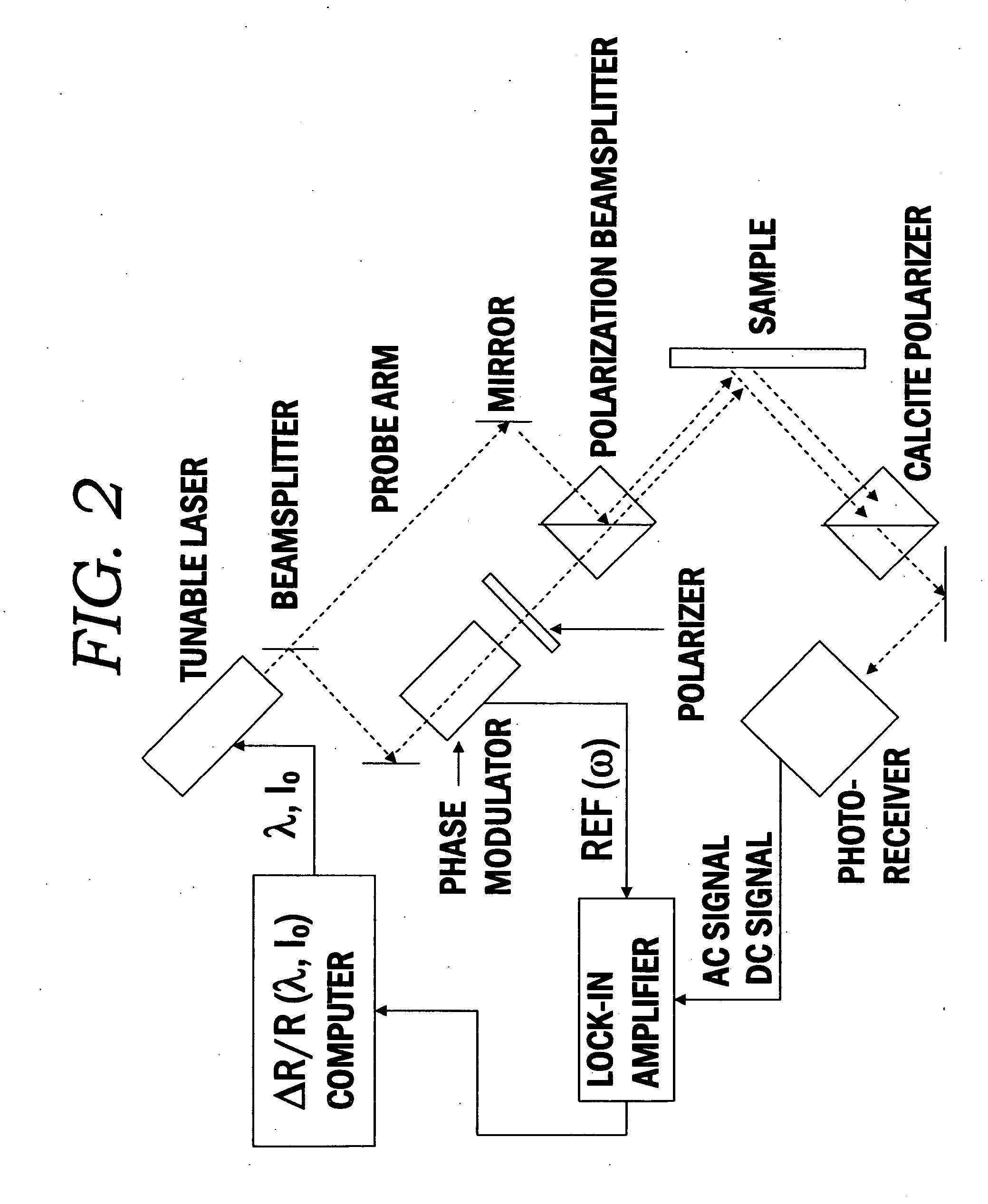Polarization modulation photoreflectance characterization of semiconductor electronic interfaces
a technology of electronic interfaces and photoreflectance, applied in the field of optical characterization of semiconductor electronic interfaces, can solve the problems of time-consuming and expensive device manufacturing steps, widely available optical techniques such as ellipsometry or reflectance, and do not have the sensitivity required to observe electronic interface signatures, etc., to achieve the effect of better appreciation of the present contribution to the ar
- Summary
- Abstract
- Description
- Claims
- Application Information
AI Technical Summary
Benefits of technology
Problems solved by technology
Method used
Image
Examples
Embodiment Construction
[0033] The following discusses use of the polarization modulation photoreflectance (PMPR) technique for characterization of electronic interfaces. It is understood that the PMPR technique of the present drawings and descriptions may be used to analyze any semiconductor material, the discussion of electronic interfaces considered to be exemplary only and in no way limiting in scope.
[0034] Turning now descriptively to the drawings, in which similar reference characters denote similar elements throughout the several views, FIG. 1 contains, in an exaggerated view, an exemplary electronic interface test structure that may be characterized using the polarization modulation photo-reflectance technique of the present disclosure. The electronic interface test structure, which may be grown using molecular beam epitaxy, comprises a negatively doped gallium arsenide (GaAs) semiconductor substrate upon which is grown a negatively doped aluminum gallium arsenide (AlGaAs) “spacer” layer of ˜94.5 ...
PUM
 Login to View More
Login to View More Abstract
Description
Claims
Application Information
 Login to View More
Login to View More - R&D
- Intellectual Property
- Life Sciences
- Materials
- Tech Scout
- Unparalleled Data Quality
- Higher Quality Content
- 60% Fewer Hallucinations
Browse by: Latest US Patents, China's latest patents, Technical Efficacy Thesaurus, Application Domain, Technology Topic, Popular Technical Reports.
© 2025 PatSnap. All rights reserved.Legal|Privacy policy|Modern Slavery Act Transparency Statement|Sitemap|About US| Contact US: help@patsnap.com



